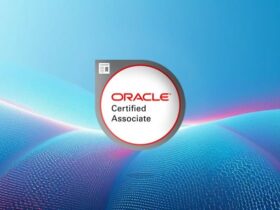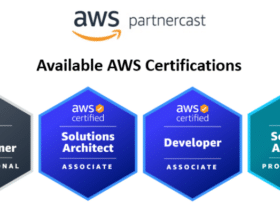In the current information age, many firms gather relevant data to boost their operations. The firms host this data on servers linked to on-premise or cloud.
Cloud data centers have become popular thanks to cost, accessibility, and scalability. Goldman analysts estimate that 23% of firms currently host IT workloads on public clouds, and their analyst projects an over 30% growth in four years.
Is cloud cheaper than on-prem? To answer this question, we have extensively researched and compiled a comprehensive analysis of the two services.
We’ll explain the difference, list the pros and cons. In addition, we’ll compare the cost of cloud vs. on-prem and find out which one is cheaper.
What is the Difference Between Cloud and On-Prem?
Cloud is a server that works on the Operational Expense model (OpEx). In this model, your firm contracts a third-party that owns infrastructure to host your data. This infrastructure includes software and hardware.
Your firm subscribes to the contractor’s services and manages the account over the web. This model allows your firm to use flexible payment options, enabling scalability depending on the requirements and usage.
On the other hand, on-prem servers work based on the Capital Expenditure model (CapEx). Your business must have an IT team, server hardware, integration capabilities, and software licenses to use on-prem. Also, your IT team controls and maintains the servers, and they must be on standby to handle any issue.
Differences Between Cloud and On-premise

As mentioned above, there are some differences between cloud and on-prem. The key differences are:
Deployment
Cloud: Cloud computing consists of private, public, and hybrid clouds. In the public cloud environment, the third-party service provider hosts the data, and your firm can use the provider’s resources remotely at any time.
On-premise: In an on-premise data center, your firm has the infrastructure on-site together with the IT team to manage it. It’s your business’ responsibility to maintain the resources and infrastructure.
Control
Cloud: In cloud computing, you lose control of the data stored in the third-party servers. However, encryption secures the data, but it will be inaccessible during downtime.
On-premise: Your firm has complete control of the on-premise data hosting setting. This arrangement favors firms with privacy concerns. It helps lower the risks of a data breach, and your company will be liable because you have complete control of the system.
Security
Cloud: Cloud data storage is prone to attacks. It takes extra vigilance on the third party’s side to ensure that information like user login credentials are safe.
On-premise: On-premise provides extra security, making it better for banking industries or the government. In the wake of cyberattacks, on-premise clouding comes in handy if your firm uses sensitive data.
Compliance
Cloud: If your company chooses to use cloud computing, it’s your responsibility to ensure that the preferred data provider meets the regulations that govern data privacy. You should ensure that the provider is compliant.
On-premise: If you choose on-premise, it would be best to remain compliant with the necessary regulations.
Cost
Cloud: Your firm only pays for the resources used in cloud computing. This data hosting model doesn’t require maintenance costs from your firm. You can also adjust the price depending on your needs.
On-premise: On-premise systems need regular maintenance, with you paying the costs. You will also pay for power bills and the space the servers occupy.
Advantages of Cloud Computing

- Backup and Restore Data: Data stored in the cloud can be easily backed up or restored if the need arises.
- Low Maintenance Cost: Cloud computing doesn’t require a firm to maintain data management software or have a team on-site to run the data center. Cloud computing also eliminates the need for space.
- Mobility: With cloud computing, you can easily access your data from any location.
- Scalability: Cloud computing offers a massive amount of storage space for data. You won’t need to add more servers to scale up your operations with cloud computing.
- Security: Cloud computing comes with encryption that ensures data protection.
- Collaboration: Through the cloud, you can easily share data with other firms if necessary.
- Flexible Payment: In cloud computing, you only pay for the services you use. The payment model gives room for scaling up and down while maintaining your budget.
Disadvantages of Cloud Computing
- Needs Internet Connection: Cloud computing needs an internet connection to function. In case of connection problems, the data will be inaccessible.
- Limited Control: Your firm will not have control of the data in the cloud, but the third-party vendor has complete control.
- Vulnerable: Due to its shared nature, cloud computing is susceptible to cyber attacks. As a result, this could lead to data breaches.
Advantages of On-premise Computing
- Complete Control: Having data and the necessary infrastructure in-house gives your firm complete control over deployment. Your IT team controls who can access the data and how to handle it.
- Compatibility: If your firm relies on legacy hardware, an attempt to migrate to another solution might cause problems. With an on-premise solution, you can continue using legacy hardware as it’s suitable for your business’ needs.
- Compliance: With each firm having privacy policies, entrusting third-party vendors may be a concern. However, you can monitor operations to ensure the IT team adheres to the privacy policy regarding the infrastructure on your premise.
- Secured: Only entrusted IT staff handle sensitive data, and they maintain the essential infrastructure on-premise. This arrangement eliminates the risk of a data breach due to exposure from a shared system.
Disadvantages of On-prem Computing

- Unreliable: On-prem computing lacks a backup system that you can use to recover data. The system may crash if pushed to its limits. The need for IT staff to maintain the system means if the server crashes in the dead of night or during a weekend, customers will have to wait a long time before the team fixes the problem.
- High Cost: The cost of running an on-prem data center is relatively high, and you will need to employ an IT team. Also, the price of upgrades is high. Aside from that, you have to pay for the space occupied by the servers, in addition to monthly power bills.
- Irregular Demand: In some instances, you will need extra servers to meet customers’ demands due to high usage. But when there is average demand, some servers will not be utilized.
Is Cloud Cheaper Than On-Prem?
So, which of the two is cheaper? You have to consider many factors when comparing the price of on-premise and cloud infrastructure. Hence, there is no outright answer to this question.
However, the trend of many firms adopting the use of the cloud suggests that it’s cheaper to run and maintain compared to the on-premise infrastructure. But is it true?
Many businesses realize that hosting their data using cloud computing might be costly. Despite on-premises having high upfront costs owing to the purchase of servers, software, and hiring an IT team, it gives your business complete control of the infrastructure.
On the other hand, despite appearing cheaper, cloud can be costly in the long run due to cloud operations, data migration, and the talent needed to manage it.
However, the cost of cloud computing isn’t the same. It depends on whether your firm is using the public or private cloud.
The public cloud refers to a cloud computing model in which the third-party provider manages the infrastructure using the public internet. Several firms share the infrastructure in this data management model.
The provider offers services such as platform as a service (PaaS), infrastructure as a service (IaaS), or software as a service (SaaS).
The provider offers the same services in the private cloud, but firms don’t share resources. It’s also known as corporate cloud and caters to the needs of a single business or organization.
Is the Public Cloud Cheaper Than the Private Cloud?
The public cloud is relatively cheap compared to the private cloud due to the use of the platform as a service (PaaS). PaaS reduces the public clouds’ Total Cost of Ownership (TCO) by offering frequently utilized components as managed services.
However, it would be best to note that if your firm has the expertise to manage several servers efficiently, private cloud run on-premises can have a TCO advantage over public clouds.
However, both cloud services have their pros and cons:
Public cloud services give you access to many resources in terms of infrastructure with no upfront investment.
In comparison, private cloud services offer infrastructure control which is more secure. This feature is a stark difference from the public clouds where you have no control and are less secure.
Hybrid Cloud

As earlier mentioned, on-premise, private cloud, and public cloud have several pros and cons. Your firm needs the best data management option with technological advancement, and that’s where the hybrid cloud service comes in.
The hybrid solution is cloud computing that integrates the services of public, private, and on-premise infrastructure.
The system offers businesses flexibility by moving IT workloads between the different cloud solutions according to the client’s needs and budget.
Is Hybrid Cloud Cheap?
Hybrid cloud is cheap, easy to use, and quick compared to on-premise, public, or private cloud. This service is affordable because it integrates traditional data management independently.
Benefits of Hybrid Cloud Servers
Using hybrid cloud gives the following benefits:
Cost
Hybrid cloud solutions reduce the cost of data management. However, you will have to procure enough servers to match customers’ demand during peak usage with on-premise.
This need for servers will get extra units that your business will fully utilize during peak demand. On the other hand, more than half of them lie idle when there is average demand.
With a hybrid cloud, you won’t need extra servers. The ones you have can serve during steady demand and use services of third-party vendors to provide additional business infrastructure during peak usage. As a result, your business will fully utilize the available infrastructure and cut costs.
Scalability
Before the inception of public cloud services, organizations found it challenging to expand their computing infrastructure to meet the demand. They were compelled to get new servers. This situation limited expansion and flexibility.
Organizations could not take advantage of new opportunities quickly. However, with a hybrid cloud solution, the situation changed.
Hybrid cloud integrates both worlds; assets, operations, and sensitive data remain in the private cloud. Therefore, businesses can scale up operations quickly and efficiently using cloud computing.
Control
Cloud computing limits your firm’s control over the system. However, you can customize your end of this model with hybrid computing tailored to your needs. With this approach, you won’t be entrusting your entire IT infrastructure to the cloud provider.
Having some control of your IT infrastructure will enable you to keep up with the current fast-paced economy. Thanks to hybrid computing, you can secure your data with the private cloud but still have the flexibility to make changes when necessary.
Security
With the rise of cyberattacks, security is a significant concern for any business handling sensitive customer data. The cloud offers relatively cheap computing solutions, but there could be risk of a data breach.
This cloud computing solution taps into the private cloud’s power and the public cloud’s infrastructure. Therefore, you get the best data management service at a minimum cost.
Also, having control of the system enables your IT team to manage access to the data and set measures for managing the assets.
Conclusion
The current information age came with a demand for data management in different industries. To efficiently handle the data, your firm needs either on-premise, data center, cloud, or hybrid.
Each of these cloud computing infrastructures come with pros and cons. Since you deal with sensitive information, you need a secure model that offers flexibility to match the fast-paced economy.
We have analyzed each cloud computing model to determine whether cloud computing is cheaper than on-prem.
Finally, we can say that neither is superior or more affordable than the other. However, you should choose depending on your particular computing needs. Use this informative piece to guide you on which model to choose.


















